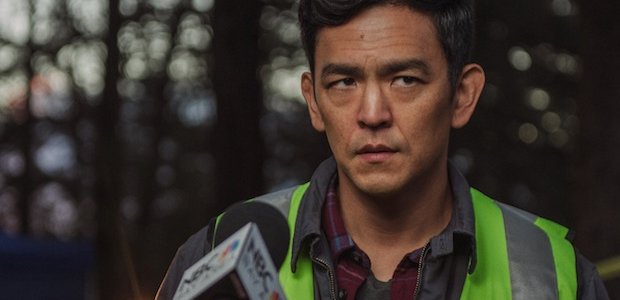The relationship between film and technology has always been symbiotic. Not only do we regularly see new ways for audiences to engage with the medium, but society-changing developments can affect the way that filmmakers tell stories. A prime example of the latter is the wave of on-screens movies -- which is to say features that play out their stories exclusively on screens, be it laptops, cellphones, or televisions. Nacho Vigalondo's Open Windows was the first to explore it, followed by the Unfriended movies, and now audiences are seeing some different genre experimentation with writer/director Aneesh Chaganty's Searching.
Based on an original screenplay by Chaganty and co-writer Sev Ohanian, the film specifically capitalizes on computers as not only as communication, but investigative tools, and exploits both to carve out a twisty mystery about a lost child and her parent's dedicated mission to find her. And while not all of it works, and the stylistic concept isn't quite as novel as it was a few years ago, it's still a flashy step and bit of cool experimental filmmaking worthy of notice. It won't change things by itself, but it certainly opens eyes to new possibilities.
Our protagonist in the story is David Kim (John Cho), a single father who has grown distant with his teenage daughter, Margot (Michelle La) since the passing of his wife. They clearly don't communicate like they used to -- and everything comes to a head one night when Margot goes out to study with friends and doesn't come back the next morning. The only thing David has to go on are a couple of missed video chats from the middle of the night, and quickly panic sets it.
When Margot is officially declared missing, David finds himself working with the police through Det. Rosemary Vick (Debra Messing) -- but from that point he isn't exactly comfortable just sitting on his hands. Instead, he manages to get access to Margot's laptop and uses it to launch an investigation of his own. Digging into her chats, web history, posted videos and social media, he begins to discover a life he didn't know his own daughter was living, and it gets him ever closer and closer to the truth.
While previous explorations of the on-screens style have been more about thrills and horror, Searching brings the most complex plot to the mix with its mystery narrative, and it's impressive how it works even when it's not working perfectly. Part of the aesthetic demands that all of the necessary information for the case and the investigation be present for audiences to see, and if you're observant enough you can figure out the ending a bit early. That being said, while it's not Hitchcockian or mind-shattering, it does remain clever and smart in the way in which it tells its story. Most importantly, there aren't any moments where you find yourself questioning the way that the technology is used, which would totally shatter the reality. Instead, everything legitimately tracks, and it sets you up for a mostly engaging ride.
Clearly the movie's style is what's meant to be eye-catching for audiences, but not to be ignored in Searching is the really wonderful performance put on by John Cho. It's a very different experience for actors making these kinds of movies, as they are isolated from their co-stars for most of the story, and looking directly into the camera, but Cho is in no way hampered. He obviously has a great deal of emotional material to work with, as his character is experiencing every parent's worst nightmare, but he completely sells both David's pain and his ingenuity.
Overall, Searching is clever feature that has a solid story to tell, but there admittedly is a degree to which the inherent potential clearly present elevates the work as a whole. Not only does the work show first-time feature director Aneesh Chaganty as an interesting experimental filmmaking, but it also lets you wonder what other kinds of stories can be told using the conceptual approach, and how the mold that's now been established can be broken and reformed. Given the ubiquity of technology today, this is a natural form of storytelling for the modern world, and Chaganty does a nice job uncovering the possibilities.

Eric Eisenberg is the Assistant Managing Editor at CinemaBlend. After graduating Boston University and earning a bachelor’s degree in journalism, he took a part-time job as a staff writer for CinemaBlend, and after six months was offered the opportunity to move to Los Angeles and take on a newly created West Coast Editor position. Over a decade later, he's continuing to advance his interests and expertise. In addition to conducting filmmaker interviews and contributing to the news and feature content of the site, Eric also oversees the Movie Reviews section, writes the the weekend box office report (published Sundays), and is the site's resident Stephen King expert. He has two King-related columns.











